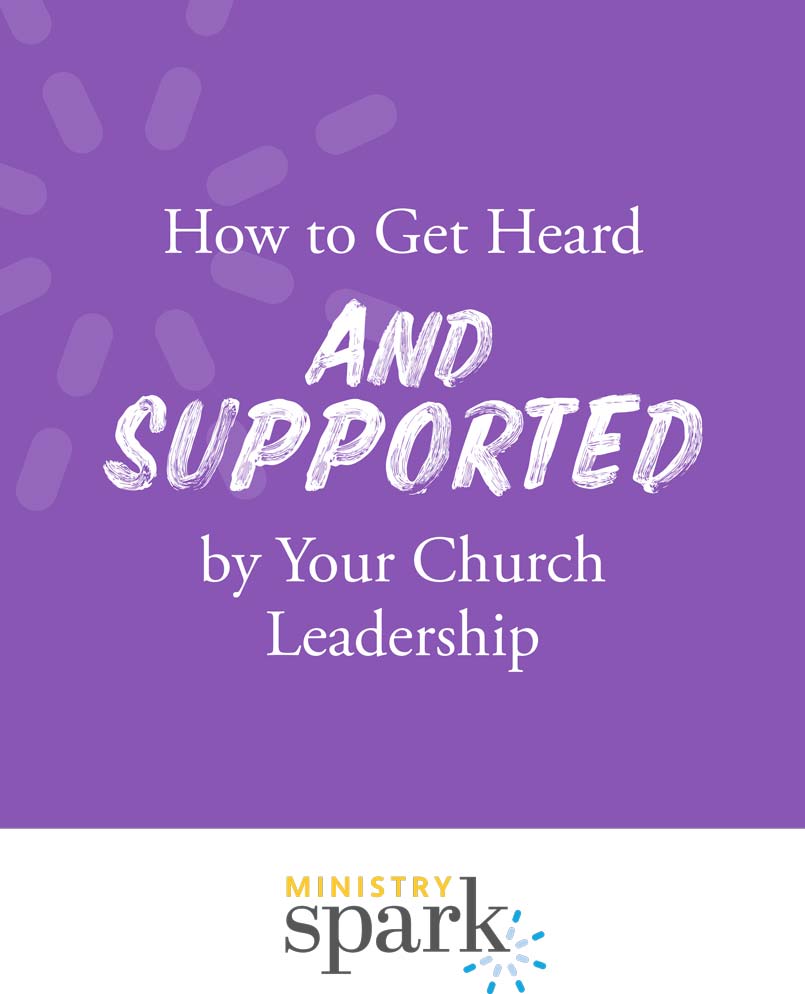Growing up in a pastor’s home is not easy. Spoken and unspoken expectations can leave kids feeling powerless under a weight that is not theirs to bear.
Pastors’ kids in this situation often choose one of two options. The first is trying to be what they feel is expected of them. The second is to buck convention and do what they want to do.
Both are forms of rebellion, and both are damaging to a meaningful understanding of the Gospel of grace.
I come from a long line of pastors. My great-great grandfather was a well-know traveling evangelist. My grandfather was a Presbyterian pastor, and my father was a bi-vocational pastor most of my life.
Growing up we moved often, my father rarely compensated for work he did. One of the most significant challenges for me and most PKs (Pastors’ Kids) is the unspoken expectation of moral perfection.
As I mentioned, this strain generally causes two distinct errors.
Some PKs find their identity in the goodness expected of them, while others never match up to that goodness and stop growing in their sanctification out of sheer despair.
The only hope for pastors’ kids is the Gospel.

The only hope for pastors’ kids is the Gospel.
Most pastors never say anything to the people who lead their kids in children’s ministry.
But from my own experience and from countless conversations with other pastors, here is what I believe your pastors would say to you given the opportunity:
1. My kids are sinners in need of a savior.
Preach the Gospel to my kids without hesitation and without exception.
Remind them over and over that they are loved not because of who they are or what they do.
God loves them because He loves them because He loves them.
“Preach the Gospel to my kids without hesitation and without exception.“
The greatest gift we can give every kid is to see him or her as a sinner in need of a savior rather than a perfect Christian.
Pastors’ kids, like all other children you teach, need to hear the Bible’s grand story of God’s redeeming love for them in Christ.
All kids need the grace and mercy of God.
2. Don’t treat my kids with favoritism, but don’t exclude my kids to prove a point.
Treat my child as someone unique.
Don’t expect her to know every Bible answer to every question, and don’t be shocked when she says or does something wrong.
Yet when she does misbehave, don’t let her get away with it because you are afraid to talk to me.
“Treat my child as someone unique.”
Pastors’ kids need to know that the church is not there to keep them in line or cover their tracks.
They need to know that the church is more than a place that employs their parent. It is a family they always grow into and never grow out of.

3. Tell me when there is a problem. I’m a parent first and pastor second.
As kids’ and youth ministry leaders, we need to help our pastors parent their kids well.
That means letting them know what their kids are like when parents are not around.
“I want to hear when my kids does well.
But I also want to know when he is acting up, withdrawing, or disengaging. “
Let your pastor hear you praise his kids when they do well.
But also inform him privately of situations that require him to address issues in his child’s faith and behavior.

How to Get Heard and Supported by Your Church Leadership

How to Get Heard and Supported by Your Church Leadership

How to Get Heard and Supported by Your Church Leadership
4. Help me teach my kids the Scriptures and doctrines that will shape their lives.
There’s something so powerful about a second voice saying everything you are saying. In kids’ ministry, we need to reinforce what parents are teaching, and this is especially true of our pastors’ kids.
“It helps for them to hear the Bible from someone besides me!“
Our pastors are parents, but they also set the theological framework of the church.
One crucial way we can understand that framework is by partnering with pastors in training their kids theologically.
Most pastors have a clear vision of what they want their kids to know. Hearing and sharing this vision can help you shape the goals of your kids’ ministry.
Your pastor is a key player in setting a vision for what every child in the church learns and what every family teaches at home.
5. Know my kids’ names. Know who they are.

As a pastor’s kid, one of the “church-hurt” things I still struggle with is that the senior pastor didn’t know my name.
“Let her know you care about her as a person, not who her parents are.“
My dad was on staff and served as an elder. It wasn’t a mega-church, maybe 200 people, and the pastor didn’t know my name.
I remember him talking to me once or twice but never using my name. I’m not sure why it hurt, but it did.
It was because of that feeling I had at the age of 14 that I try to know the name of ever kid in our kids’ church
I try to know the children of the staff well enough to talk to them about the things they love and tease them and let them know that I care about them as a person more than the family they are by providence attached to.
Pastors’ kids are notorious for trying to use their influence to get special privileges.
But what they really want is what each of us wants: to be known and loved.
You Can Do for Your Pastor What No One Else Can Do
When you work in kid’s ministry, you have an excellent opportunity to do for your pastors what no one else can do: partner with them in proclaiming the Gospel to their kids.
Let their kids know that the church is not just the place where their parents have been called; it is the place where God has called each of us to not only attend but to contribute.
Pastors’ kids need to see the beauty of the church because—more than any other kid in your ministry—they see the painful, heartbreaking side.
When my wife was sick a few years ago, our family walked through a difficult season. But we did not walk alone because our church is a family, and my kids saw that reality themselves.
That picture of the church being the church will imprint on the minds of our kids what a million messages and well-crafted object lessons could never do.
Be the church to your pastors’ kids. That’s what they need more than anything you can say. To see the church be the church is a beautiful, life-altering thing.








